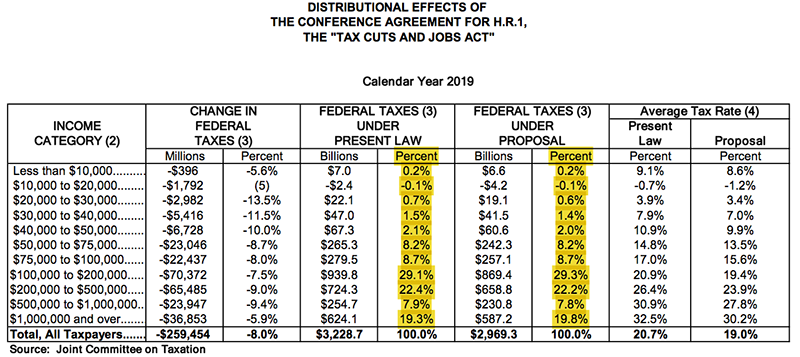Frank Bretschneider Boiler Room Berlin Live Set
Frank Bretschneider: One of the key activists of the electronic music underground in former East Germany, Frank Bretschneider has continued to revolutionize electronic music as part of raster-noton for the past 20 years. Today he presents his brand new album!
On Facebook
Want Cleaner Air? Try Using Less Deodorant
Kendra Pierre-Louis and Hiroko Tabuchi in The New York Times:
Researchers found that petroleum-based chemicals used in perfumes, paints and other consumer products can, taken together, emit as much air pollution in the form of volatile organic compounds, or V.O.C.s, as motor vehicles do.
The V.O.C.s interact with other particles in the air to create the building blocks of smog, namely ozone, which can trigger asthma and permanently scar the lungs, and another type of pollution known as PM2.5, fine particles that are linked to heart attacks, strokes and lung cancer.
But what is the Fourier Transform?
3Blue1Brown:
An animated introduction to the Fourier Transform, winding graphs around circles.
My Life as a New York Times Reporter in the Shadow of the War on Terror
James Risen in The Intercept:
My case was part of a broader crackdown on reporters and whistleblowers that had begun during the presidency of George W. Bush and continued far more aggressively under the Obama administration, which had already prosecuted more leak cases than all previous administrations combined. Obama officials seemed determined to use criminal leak investigations to limit reporting on national security. But the crackdown on leaks only applied to low-level dissenters; top officials caught up in leak investigations, like former CIA Director David Petraeus, were still treated with kid gloves.
[…]
But even as I was losing in the courts, I was gaining ground in the court of public opinion. My decision to go to the Supreme Court had captured the attention of the nation’s political and media classes. Instead of ignoring the case, as they had for years, the national media now framed it as a major constitutional battle over press freedom.
[…]
I was worried, but I felt certain that the hearing would somehow complete the long, strange arc I had been living as a national security investigative reporter for the past 20 years. As I took the stand, I thought about how I had ended up here, how much press freedom had been lost, and how drastically the job of national security reporting had changed in the post-9/11 era.
Why don't cities grow without limit?
Tyler at MR:
Paul Krugman has a good blog post on that topic, here is one of his points:
…once upon a time dispersed agriculture ensured that small cities serving rural hinterlands would survive. But for generations we have lived in an economy in which smaller cities have nothing going for them except historical luck, which eventually tends to run out.
Krugman suggests that eventually many smaller cities will indeed fade away, although the process of equilibration may be a long and slow one. All of his points are well-founded, nonetheless I can see a few factors favoring the continuing existence of small cities on a greater scale than many might be expecting:
I agree with both. Competitive growth oriented businesses will locate in large cities, but cost of living and welfare can be more efficiently had in smaller. I see some balance. Also, foot voting wants choices and differentiation …
Whereof One Cannot Speak, Thereof One Must Be Silent
Sumner with an interesting anti-bubble-theory thought at EconLib: (EMH is Efficient Market Hypothesis)
The EMH doesn’t do a good job of explaining the 1987 stock market crash, or the 2000-02 tech stock crash. It’s hard to find fundamentals that would justify such a dramatic shift in prices over a short period of time. (Actually much harder for the 1987 crash than the tech stock declines, which took considerably longer.) So how do I defend the EMH? Two points:
The EMH is very useful to me in all sorts of ways. It’s also consistent with a lot of research on the wisdom of crowds, and basic economic ideas such as competitive rates of return in competitive markets with free entry. It’s got a lot going for it. Because of the EMH, I’ve invested in index funds, and also engaged in buy and hold of stocks (not day trading). I ignored Shiller’s 2011 comments on overvalued stocks. My 401k has done very well as a result. It also helped me during my research on the Great Depression, when I found that market responses to policy shocks were much more perceptive that expert opinion, even the expert opinion of Friedman and Schwartz.
The EMH cannot explain certain puzzling facts. (Matthews right about that). And on these points we should just keep our mouths shut.
Somewhere, Away From It All
Eve Lyons and Molly Walls in The New York Times:
Somewhere on the Olympic Peninsula, which extends from the northwest coast of Washington, a community has chosen to live independent of the public supply of water, electricity and other utilities on which most residents rely. Linked by a diffuse network of shared friends and land, they would be impossible to locate without insider knowledge. Dense forest obfuscates their dwellings — tiny houses, trailers, a landlocked houseboat — often accessible only by dirt roads or footpaths.
Craigslist’s Effect on Violence Against Women
Drug legalization is slowly making progress, next up: sex work:
Paper by Scott Cunningham, Gregory DeAngelo, John Tripp:
Between 2002 and 2010, Craigslist provided an “erotic services” section on its front page which was used almost exclusively by prostitutes to advertise illegal sex services. The company opened this service in different cities at different points in time. We use a differences-in-differences strategy to identify its causal effect on female safety and find that Craigslist erotic services reduced the female homicide rate by 17.4 percent.
That’s 17.4% across the entire female population, not just prostitutes. Government enforced morality laws kill people, exhibit B.
What’s the Cure for Ailing Nations? More Kings and Queens, Monarchists Say
I’m more a fan of dictatorships, but sure, monarchies are preferable to representational democracies.
Leslie Wayne in The New York Times:
A recent study that examined the economic performance of monarchies versus republics bolsters their views. Led by Mauro F. Guillén, a management professor at the Wharton School at the University of Pennsylvania, the study found “robust and quantitatively meaningful evidence” that monarchies outperform other forms of government.
Grid Corrections
Gerco de Ruijter:
See also http://www.travelandleisure.com/articles/gerco-de-ruijter-grid-corrections-highways-driving-wichita
And his amazing past project Cropped:
Darude - Sandstorm (Potato Cover)
As a fan of Sandstorm covers with alternate instruments, I can’t not post this:
Of course this will never be topped:
Distributional Impact of the Tax Cuts and Jobs Act
Quiz for you: Do “the rich” pay less taxes under the new tax plan?
Ok, now look at this data:
Sill say so? By what definition?
Via John Cochrane.
Legal Systems Very Different From Ours
Scott Alexander reviews:
Medieval Icelandic crime victims would sell the right to pursue a perpetrator to the highest bidder. 18th century English justice replaced fines with criminals bribing prosecutors to drop cases. Somali judges compete on the free market; those who give bad verdicts get a reputation that drives away future customers.
“Anarcho-capitalism” evokes a dystopian cyberpunk future. But maybe that’s wrong. Maybe we’ve always been anarcho-capitalist. Maybe a state-run legal system isn’t a fact of nature, but a historical oddity as contingent as collectivized farming or nationalized railroads. Legal Systems Very Different From Ours, by anarcho-capitalist/legal scholar/medieval history buff David Friedman, successfully combines the author’s three special interests into a whirlwind tour of exotic law.
People from whom I have heard an interesting theory this year
This is sort of like an end-of-year book list, but a lot of good ideas are communicated via blogs and twitter, and they need recognition too! So, here’s a list of high-quality ideas and theories I read, and who I found them from.
The Western Elite from a Chinese Perspective
Puzhong Yao in American Affairs:
Robert Rubin never intended to become the senior partner of Goldman Sachs: a few years into his career, he even handed in his resignation. Just as in Rubin’s career, I find that maybe randomness is not merely the noise but the dominant factor. And those reasons we assign to historical events are often just ex post rationalizations. As rising generations are taught the rationalizations, they conclude that things always happen for a reason. Meanwhile, I keep wondering: is there someone, sitting in a comfortable chair somewhere, flipping a coin from time to time, deciding what happens in the world?
Most Americans that I have met seem confused about this question. Perhaps it is understandable since most of them are not in finance and have not read Rubin’s book. Their goal is always to change something—Stanford business school’s motto is “change lives, change organizations, change the world”—though they rarely seem to know what or how. Or what the role of chance and circumstance is. But if the goal is to change something, they must have the ability to determine the future, mustn’t they?
The hard road of free markets
John Cochrane lays down some wisdom:
The sad paradox of free markets is that free markets do not need people to understand them to work. But democracy does require voters to understand how things work.


